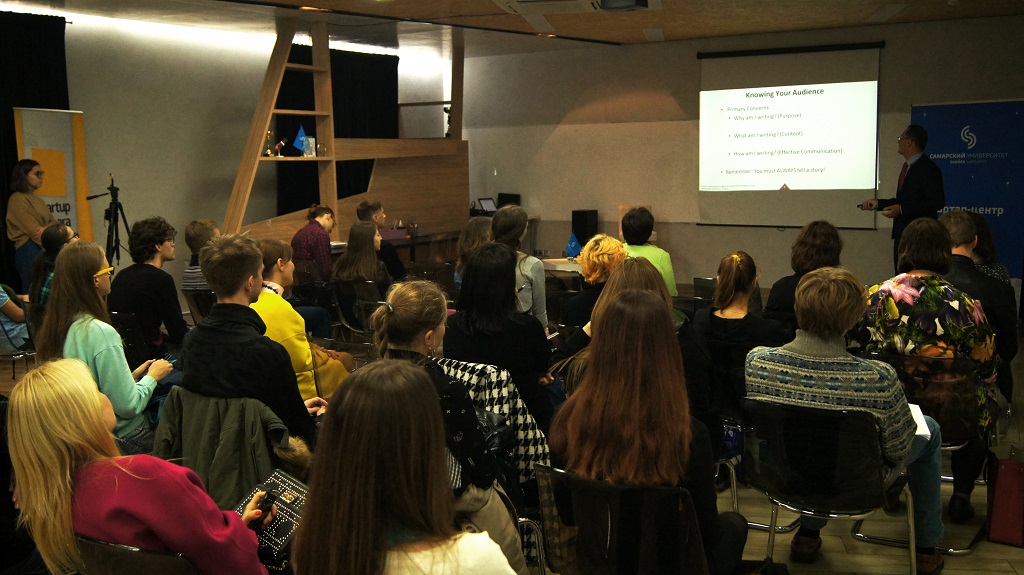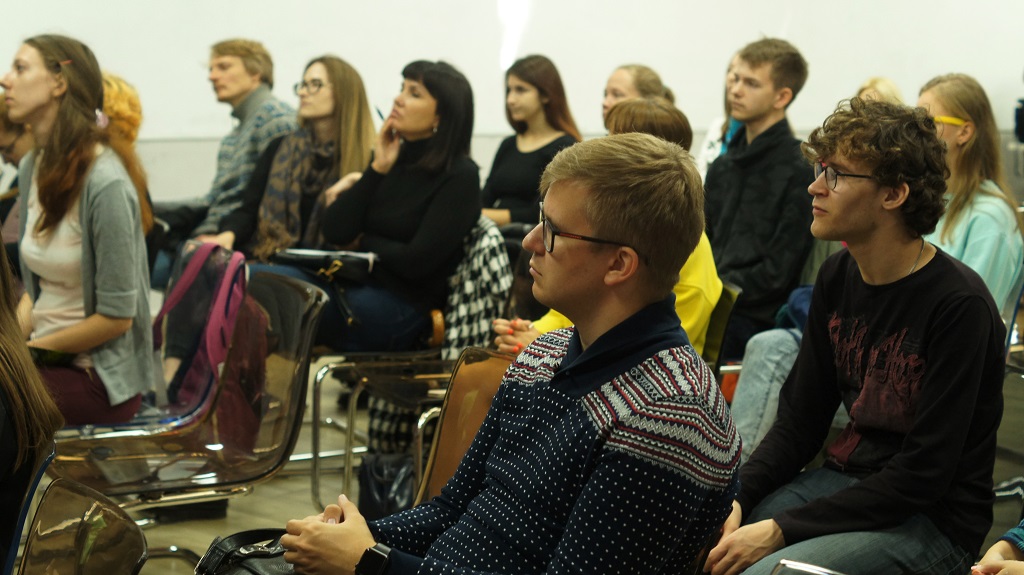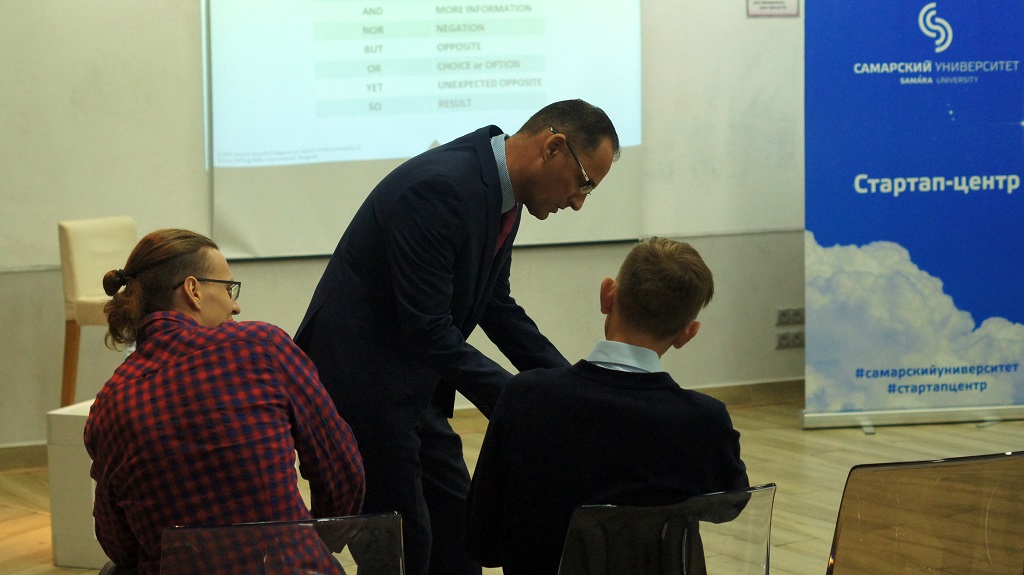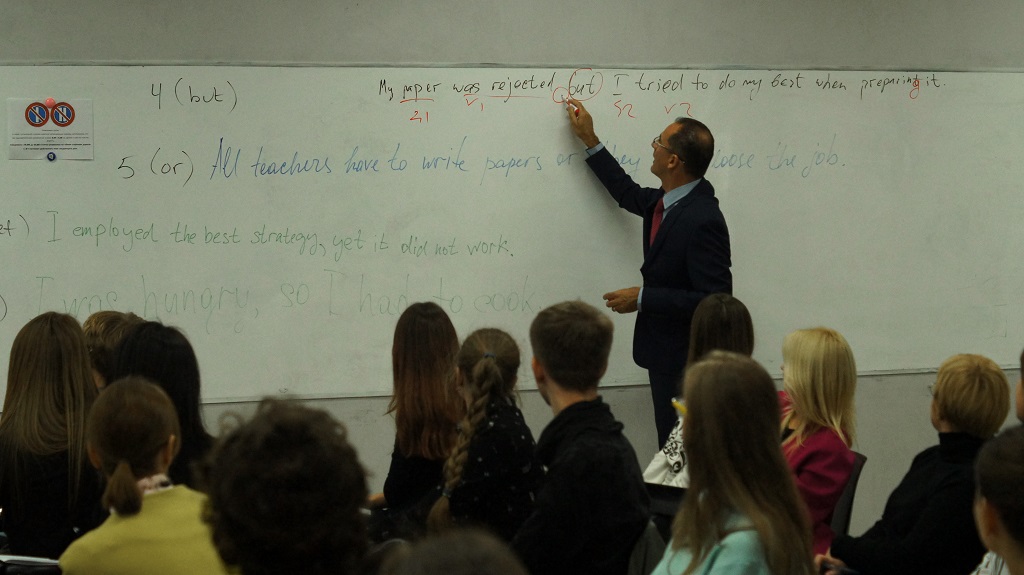Why have you chosen linguistics?
I didn’t choose it, it chose me. My first degree is meteorology with a minor in mathematics, so I’m a scientist. But it wasn’t personal enough, and I started studying linguistics. It’s a system, just like math, where you realize how languages work and how they function. I decided to do my PhD in language acquisition and chose writing as my focus because students often struggle with writing. They usually speak and understand quite well. But even my native speaking students struggle because writing is very complicated. So, I did my dissertation on that and then I thought there is a big demand all around the world. People want to become confident and skillful writers in English. It’s in demand, and that’s why I do workshops.
Where have you already been with your workshops?
Samara is my sixth trip to Russia in 3 years. I’ve also been to Ukraine twice, went to Colombia and Mexico. I enjoy doing it, and I think it’s fun when people get the ‘aha’ moment and understand that their writing became better than last year. I even tell people I keep getting better, too. The more I help people, the more I practice, edit, and write. It’s a process, and you never finish it.
Tell us five basic rules of perfect academic writing.
There is no perfect essay, but you can write a good essay if you make sure you use the appropriate vocabulary. If you use too many scientific words, no one understands it. So, you have to balance the scientific vocabulary with understandable vocabulary.
Another one is to always tell a story. No matter how long or how short your writing is, I need to know: who, what, when, where, why and how.
Punctuation is also very important. I know some cultures don’t pay attention to punctuation rules at all, others pay too much attention. You need to know the rules of punctuation because it changes the meaning, the flow, and the speed.
Then, make sure your sentences aren’t too long – no more than 20 words. If you get longer than that, people start to lose interest or concentration. Besides, they get too much information and get overloaded.
Finally, learn how to use synonyms correctly. You don’t need to use the same words over and over but also don’t use the words that are too complicated, and no one uses them. So, what I tell my students is look at the synonym list and pick 3 most common and most popular ones, use those and repeat them around the paper.
How academic writing has changed since the development of the Internet?
We see a lot of informal writing now and people transfer the skills of texting to the paper, for example, a lot of contractions. But we shouldn’t have those in academic English. If you use on paper things you use in speech, it does not always give credit to the writing style.
Another thing I’ve noticed is that people plagiarize more. They steal other people’s work from other countries, or they do it in different languages. They think we’re not going to find out, but we do. It has become easier to cheat now on the Internet. That’s a big problem. Academic integrity has become a challenge due to the
Are those rules suitable for the Russian language?
I can’t say about other languages, but in English for sure. I would say in any language if you don’t want to make the reading boring, confusing, and difficult. I don’t know the rules of punctuation in Russian, but I know the people that write very-very long sentences. Just think about the audience, keep it in your mind. Always make it easy for the audience to read, to enjoy, and to learn. If you make the writing boring, people won’t read it. And you want them to read more, right?
You’ve been to Russia many times. Have you tried learning Russian?
I’ve started to learn it but managed only with the sound system. I can look at the letter and say is it "Б" or "Г". I say a few words like "privet" and "spasibo". That’s all.
That’s why everyone has to speak English with me during my classes, and it forces people to use the language. Russian can’t practice a lot. So, we should use the language in a more informal and fun environment to make people speak more and become more confident about their knowledge. Nobody speaks "bad English" during the lessons because "bad English" is the word that starts with the letter F. My English is not perfect, I have a Rhode Island accent, but it’s still fine. Just enjoy your speaking.
Maria Zatler
5201-420302D
 RU
RU  EN
EN  CN
CN  ES
ES 



